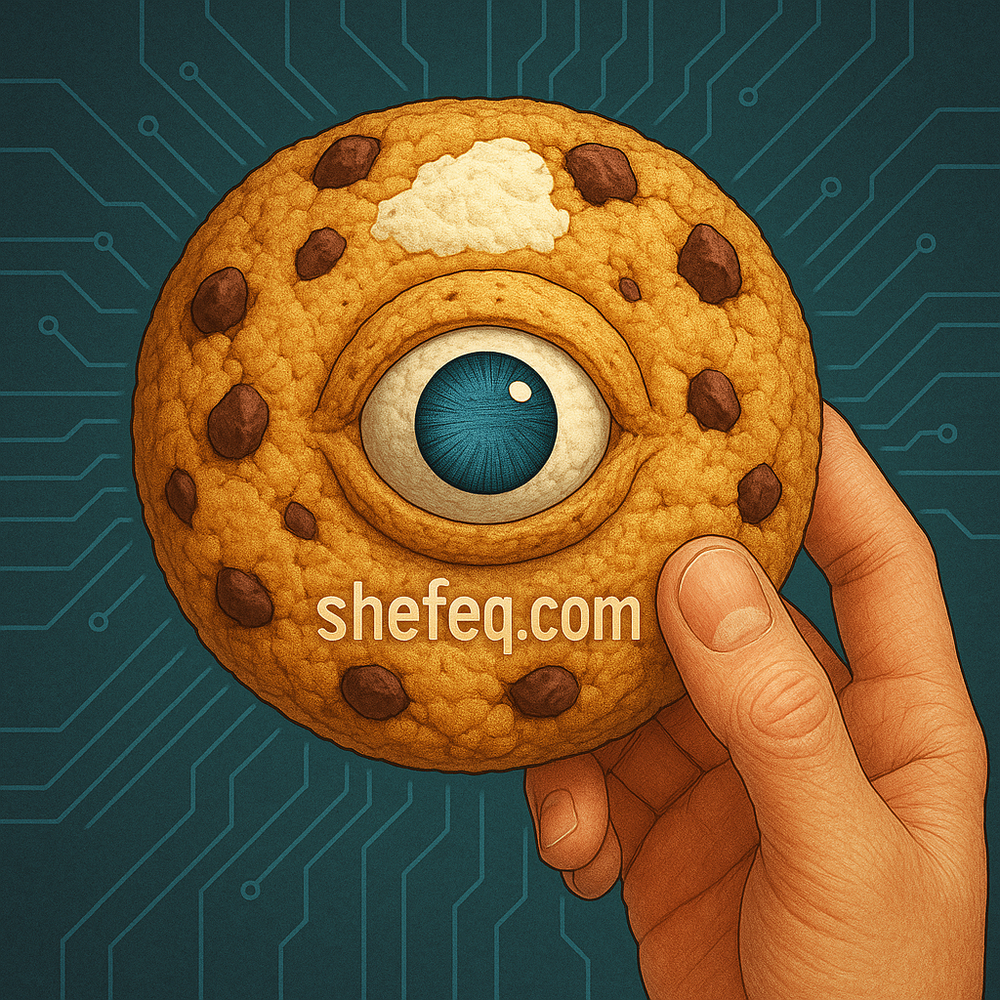A delicious yet surveillance-driven future born from the fusion of new technologies, the food industry, and artificial intelligence
I. INTRODUCTION: HIDDEN EYES ON THE TABLE
Once upon a time, cookies were just a sweet delight. A nostalgic memory from childhood—baked by our grandmothers, dipped in milk, and joyfully eaten. But in the future, a cookie sitting on the table will no longer be just a mix of flour, sugar, and butter. It might also be a device that monitors your health, analyzes your behavior, and operates with artificial intelligence.
The saying “We are what we eat” is no longer just biological or psychological—it has become technological. So, will the cookies of the future really track us? And will this "tracking" become an opportunity for better health or the end of privacy?
II. WHERE FOOD MEETS TECHNOLOGY: SMART COOKIES
Technological advancement is making the food industry "smarter." Today we already have "smart refrigerators," "calorie-counting forks," and "food scanners." But now researchers are aiming even higher: to turn the food itself into a data-collecting and transmitting object.
What is a smart cookie?
It’s a cookie equipped with nano-sensors that read biological indicators in your body—such as blood sugar levels, digestion processes, and body temperature—as you eat it. It can even send this data to your mobile app, your doctor, or an AI-powered health platform.
In short: while you’re eating the cookie, it’s also “reading” you.
III. A SCENE FROM THE FUTURE: FROM COOKIE TO DIAGNOSIS, THEN TO PRESCRIPTION
Imagine this: You eat a cookie for breakfast. It’s delicious—orange-flavored, made with natural sweeteners. But at the same time, it performs a DNA analysis from your saliva, measures your stress hormones, checks your blood sugar, and reports:
-
“Your insulin level is high today. Avoid additional sugar.”
-
“Mild liver inflammation detected. Contact your physician.”
It could even go further—acting as a sort of “internal dietitian” and offering you a customized nutrition plan.
IV. SAFETY OR THE END OF PRIVACY?
These technologies could revolutionize healthcare. But what will we lose in return?
1. Who gets the data?
The health information collected by a cookie may be transmitted to clinics, companies, or even insurance providers. While this could aid personalized treatment, it poses serious risks if the data falls into the wrong hands.
2. Used for advertising?
Imagine the cookie detects high blood sugar and, five minutes later, you receive an ad for “sugar-free diet chocolate” on your phone. Helpful or manipulative?
3. Psychological effects
Knowing you're being monitored at every meal could lead to stress and anxiety. Eating may no longer bring pleasure, but rather become a data-driven routine.
V. THE FOODS OF THE FUTURE: NOURISHMENT THROUGH INFORMATION
Next-generation cookies won’t just observe—they’ll adapt to you.
Bioadaptive cookies
These cookies can change their composition depending on what your body lacks. For example:
-
Low iron? The cookie enriches itself with iron.
-
High blood sugar? It activates compounds that reduce insulin resistance.
Such cookies may become part of the pharmaceutical industry. "Healing through food" will not only be a return to nature but also a leap into technological innovation.
VI. ETHICAL QUESTIONS: HOW FAR CAN A COOKIE GO?
Behind all this technology lies a critical question: Where do we draw the line?
-
What if cookies given to children analyze their emotional state and inform the parents: “Your child seems sad”—is that ethical?
-
What if cookies in nursing homes collect data about depression risk in elderly people—what should the state do?
-
What if the government distributes these cookies to soldiers, students, or prisoners—is that surveillance or social responsibility?
Such questions challenge how human-centered and how manipulative future food technologies might be.
VII. BIO-LIFE'S GRANITE COOKIES
The integration of technology with biology is now inevitable. But when the symbol of that integration is a cookie, the result is both amusing and alarming.
Maybe, in the future, food won’t just keep us alive—it will help us understand ourselves. Every bite a diagnosis, every cookie an analysis, every meal a feedback device.
But will we still protect the ritual of eating as something sacred? Or will technology reprogram our appetite too?
VIII. CONCLUSION: THE THIN LINE BETWEEN DELIGHT AND DREAD
“Will cookies of the future track us?” may sound like a metaphor. But it’s quickly becoming reality. A time is arriving when food won’t just digest in our stomachs, but also analyze our minds and moods.
Perhaps one day we’ll say:
“I ate a cookie, and it detected my depression. It suggested a treatment plan.”
Or…
“I ate a cookie, and it now knows where I’m going and what I’m thinking—better than I do.”
WHAT DO YOU THINK?
Does the idea of such smart cookies scare you or excite you? Will tracking through food be a comfort or a threat in the future?
Share your thoughts with SEFEQ.COM.

